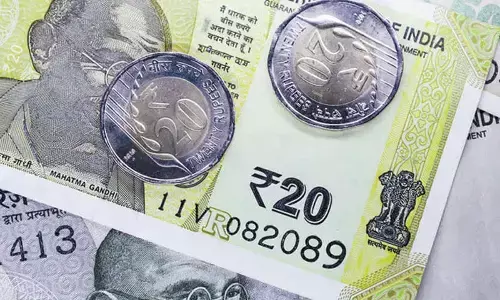Unlocking the Door to Europe: How to Secure Your Schengen Visa

Dreaming of sipping a cappuccino in a café in Rome? Wandering medieval streets in Bruges? Island-hopping in Greece? For many travellers, Europe promises iconic destinations, rich history and culture, and delicious food.
But before you can unlock the door to European adventures, you must secure a Schengen visa - the key that allows access to 26 European countries. With confusing requirements, piles of paperwork, and often long processing times, obtaining a Schengen can be a daunting barrier for entry.
This guide breaks down everything you need to know to get your visa approved successfully. Follow these tips, and you’ll be walking the Charles Bridge in Prague or beach-hopping in Croatia in no time!
Choose the Right Schengen Visa Type
The first step is determining which Schengen visa type you need for your travel plans. With fees starting around $80 per application, you’ll want to get this right the first time!
The main visa options for entering the Schengen Zone include:
Short-Stay Schengen Visa
This visa permits you to remain within any of the 26 Schengen Area countries for up to 90 days (about 3 months) out of a 180-day span for purposes like tourism, visiting friends or relatives, or attending short-term business events.
Unlike longer-term visas, the key restrictions here are no permission to study long-term or seek employment. It's intended for briefer trips measured in weeks to months where you have an established residence and livelihood to return to back home. You’ll need to show ties proving you cannot permanently relocate.
Long-Stay Schengen Visa
A long-stay visa allows you to remain within the Schengen Zone for 91 days up to a full year. These visas require more documentation as they are for extended stays for purposes like:
● Long-term work contracts with a company in a Schengen country
● Enrollment in university study abroad or educational programs over 90 days
● Long stay with family members who reside in a Schengen state
● Receiving long-term medical treatments at Schengen hospitals
This type also eventually leads to residency permits.
Airport Transit Schengen Visa
This visa allows passport holders from certain countries to pass through a Schengen Zone airport even when not leaving the international area. So if you have a layover at a hub like France’s Charles de Gaulle airport but aren’t visiting France per se.
This type is typically only required for travellers of nationalities considered higher illegal immigration risks based on historical overstay patterns. But if needed, it must be obtained or boarding passes will not be issued.
Once you identify the appropriate visa type that matches the purpose and duration of your upcoming travels, you can begin gathering the required paperwork and documentation.
Prepare Your Paperwork Thoroughly
Securing visa approval depends greatly on submitting complete, accurate applications. Skipping information or supplying incorrect details are common reasons for rejection.
Required paperwork can include:
● Valid passport with 6+ months before expiration
● Recent passport-size photos
● Proof of sufficient travel insurance for Schengen coverage
● Round-trip transportation bookings
● Accommodation reservations
● Cover letter explaining the purpose and details of your trip
● Bank statements proving you can financially support your travels
In addition, you may need extra documents like university enrollment verification for student visas or formal business event invites for conference travel.
Review the specific requirements for your country and visa type closely. Being meticulously thorough here pays off!
Remember: Travel Insurance is Mandatory
One absolute requirement for all Schengen visa applicants is proof of travel insurance. And not just any policy will do. When reviewing travel insurance options, be sure to verify:
● Minimum coverage
● Valid in Schengen countries
● Includes emergency medical evacuation
● Covers the entire duration of your trip abroad
Having inadequate coverage or no proof of insurance are reasons consulates frequently reject visa applications. Don’t risk your Schengen dreams by trying to cut costs here!
Pro Tip: To simplify getting compliant coverage, choose a reputable provider offering Schengen-specific insurance policies designed to meet all requirements.
Allow Plenty of Processing Time
While visas can sometimes be processed in just a few days, official processing times average 15 days and extend to 60 days during peak seasons. Avoid disappointment by submitting your application well in advance of your planned travels.
Check with your country’s consulate for the latest processing delays and submit at least 8 weeks beforehand when possible. Appointments may be booked months out, so schedule yours early.
For faster decisions, apply directly at the consulate covering your state rather than mailing applications. If needed, make an in-person follow-up appointment to get questions answered or check status updates. Persistence and patience pay off!
Choose the Right Schengen Country Consulate
Another strategic decision is identifying which consulate to submit your application through. You aren’t necessarily bound to your closest location.
Since each country sets their own visa policies, approval rates can vary significantly by consulate. Check recent trends to select your best option. Processing times and requirements may differ as well.
For example, French or Italian consulates tend to have higher visa approval rates than those in Germany, Switzerland or Spain. The Greek consulate typically processes requests faster than in Scandinavian countries.
Doing some research here and shopping around increases your chances for quick success!
Master the Schengen Visa Interview
Applicants from many Asian, African, and Middle Eastern countries especially must attend a formal in-person visa interview at their consulate before final visa approval decisions can be made.
This one-on-one conversation allows embassy and consulate officers to thoroughly verify key details on your application form, rigorously assess genuine intentions for travel, and actively screen for any potential signs of visa fraud
risks or underlying illegal immigration motives.
Failing to convince the reviewing officer that you have reasonable intentions as a legitimate temporary visitor who plans to reliably return home within the defined period after finishing your stated travel itinerary can unfortunately
still result in a denied visa decision - even if you perfected compiling all written application paperwork.
Come well-prepared to explain clearly and extensively:
Purpose
● Clearly state the central purpose of your travel, such as tourism, visiting relatives, business meetings, conferences, etc. Have specific details.
● Provide an overview explaining key highlights and locations you wish to visit aligned with this trip purpose that reasonably fit the duration of stay you are requesting.
Full Itinerary
● Be able to outline your full day-by-day itinerary across the entire span of your planned travels within Europe.
● Know dates and accommodation details. Mention specific landmarks and attractions you hope to see or activities you will be participating in.
● Explain logical logistics like transport between cities/countries. Leave no gaps unclear.
Incentives to Return
● Describe current family relationships demanding your return. If single, detail meaningful job/career/academic pursuits requiring coming back
● Emphasise financial or property assets only available if you return to prove you aren’t looking to illegally migrate and work permanently abroad illegally.
Financial Means
● Demonstrate exactly how you have fully funded the entire cost of your detailed European travels yourself through legitimate savings or employer sponsorship, etc.
● Being unable to prove access to sufficient lawful financial means to support yourself without working illegally severely jeopardises visa approval odds.
Dress professionally, speak respectfully, and prove how this experience aligns with your current place and prospects in life back home. Make a great impression to pass this final hurdle with ease!
Appeal Rejected Visa Applications When Possible
Despite best efforts, some small mistake or oversight beyond your control can lead to that dreaded visa denial. When you get the bad news, take a breath and assess your appeal – especially if your travel dates are flexible.
Supplementary documentation, clarification letters, a shift in planned itineraries, or applying through another consulate may reverse decisions in your favour without completely restarting applications. Check appeal policies and file
formal requests when worthwhile.
Getting denied once doesn’t necessarily mean it's game over for your Eurotrip dreams!
The Bottom Line
With iconic destinations, stunning landscapes, and tempting gastronomic delights, Europe always inspires serious wanderlust. However, navigating the Schengen visa process presents a formidable barrier keeping many from
fulfilling bucket-list journeys.
By using this guide to submit complete applications with proper planning, travel insurance for Schengen, and precision, you can secure visa success and unlock those doors to European adventures at last!
What tips do you have for hassle-free Schengen visa approvals? Planning your own Eurotrip travels? Share your thoughts and questions below!
Disclaimer: The information provided in this article is for general informational purposes only. It is not intended as a substitute for professional advice and should not be relied upon as such. The author and the website make no representations or warranties of any kind, express or implied, about the completeness, accuracy, reliability, suitability, or availability of the information contained in the article. Any reliance you place on such information is therefore strictly at your own risk. The article may contain links to external websites for additional information, but the author and the website do not endorse or guarantee the accuracy of content on those sites.








